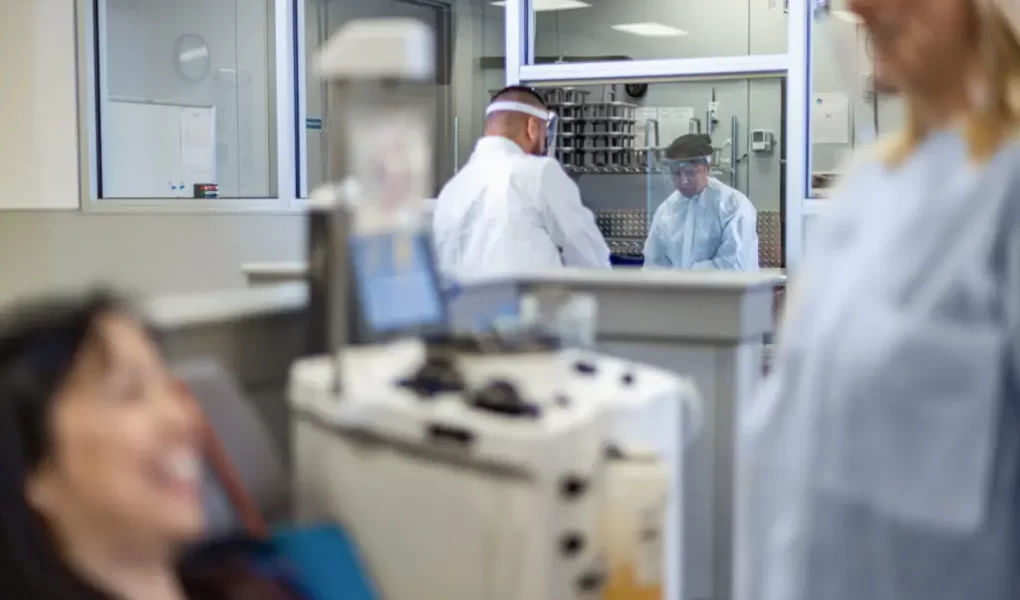Key Takeaways:
- Plasma donation can make a significant impact on the lives of others and support local healthcare initiatives.
- Donated plasma is utilized in the treatment of individuals with bleeding disorders, immune deficiencies, and critical illnesses.
- The demand for plasma outweighs the supply, and the need for plasma is constantly growing.
- Plasma donations contribute to medical advancements by supporting research and development efforts.
- The process of donating plasma involves checking eligibility, scheduling an appointment, medical screening, and the actual plasma donation.
- Plasma donation appointments usually take around 1-2 hours, with the donation itself lasting approximately 45 minutes.
- To have a successful and comfortable plasma donation experience, it is important to stay hydrated, eat a nutritious meal, wear comfortable clothing, relax, and follow post-donation care instructions.
- Plasma donation in Orem supports local healthcare initiatives and contributes to the well-being of patients in need.
- Plasma donation centers follow safety protocols and guidelines to ensure donor safety and health.
- Donating plasma does not weaken the immune system or pose significant health risks when conducted in a reputable plasma donation center.
Plasma donation is a selfless act that can make a significant impact on the lives of others and the communities they live in. It is a process through which individuals can contribute to life-saving medical advancements, support local healthcare initiatives, and improve the well-being of patients in need. In Orem, Utah, there are numerous opportunities for individuals to become plasma donors and make a difference in their community. This guide aims to provide a comprehensive understanding of plasma donation, its importance, the process involved, the benefits it brings to Orem, eligibility requirements, and safety guidelines.
- The Importance of Plasma Donation
1.1 The Life-Saving Potential of Plasma Donations
Plasma, the liquid component of blood, plays a crucial role in saving lives. It contains proteins, clotting factors, and antibodies that are used to produce life-saving medications for patients with various medical conditions. Donated plasma is utilized in the treatment of individuals with bleeding disorders, immune deficiencies, and other critical illnesses. By donating plasma, individuals contribute to the availability of these medications, providing hope and life-saving treatments to patients who rely on them.
1.2 Understanding the Critical Need for Plasma
The need for plasma is constantly growing, and the demand outweighs the supply. Many medical conditions require plasma-derived medications, and the number of patients requiring these treatments is increasing. Additionally, plasma is a valuable resource in emergency situations such as natural disasters or pandemics where there is an urgent need for medical products. Meeting the demand for plasma relies heavily on the willingness of individuals to donate and make a difference in the lives of those in need.
1.3 How Plasma Donations Impact Medical Advancements
Plasma donations contribute to medical advancements by supporting research and development efforts. Scientists and medical researchers rely on donated plasma to study and develop new treatments for various diseases and conditions. Understanding the composition and properties of plasma can lead to breakthroughs in medical science and the development of innovative therapies. By donating plasma, individuals play a crucial role in advancing medical knowledge and improving healthcare outcomes.
- The Process of Donating Plasma
2.1 Step-by-Step Guide to Donating Plasma
The process of donating plasma involves several steps to ensure the safety and quality of the donated plasma. Here is a step-by-step guide to donating plasma:
- Check eligibility: Before donating plasma, potential donors need to meet certain eligibility criteria, such as age, weight, and overall health.
- Schedule an appointment: Contact a local plasma donation center in Orem to schedule an appointment for the donation.
- Arrival and registration: Upon arrival at the donation center, donors will be required to complete a registration process, including providing identification and answering health-related questions.
- Medical screening: Donors will undergo a medical screening process to ensure they meet the required health standards for plasma donation. This may involve a physical examination and a review of medical history.
- Plasma donation: Once cleared for donation, donors will be seated in a comfortable donation chair. A trained healthcare professional will insert a needle into a vein and collect the plasma while the donor relaxes.
- Post-donation care: After the donation, donors will be provided with post-donation care instructions, which may include rest and hydration recommendations.
2.2 What to Expect During a Plasma Donation Appointment
During a plasma donation appointment, donors can expect a welcoming and professional environment. The donation process typically takes around 1-2 hours, with the actual donation lasting approximately 45 minutes. Plasma is collected using an apheresis machine that separates the plasma from whole blood and returns the remaining blood components back to the donor’s body. The process is generally painless, with minimal discomfort experienced from the needle insertion. Donors are encouraged to bring a book, music, or other forms of entertainment to keep them occupied during the donation.
2.3 Tips for a Successful and Comfortable Plasma Donation Experience
To ensure a successful and comfortable plasma donation experience, here are some tips to consider:
- Stay well-hydrated: Drink plenty of fluids, especially water, in the days leading up to the donation.
- Eat a nutritious meal: Have a balanced meal before the donation to maintain energy levels.
- Wear comfortable clothing: Choose loose-fitting clothes with sleeves that can easily be rolled up.
- Relax and stay calm: Deep breathing exercises and listening to calming music can help reduce anxiety during the donation.
- Follow post-donation care instructions: Rest, hydrate, and avoid strenuous activities for a few hours after the donation.
- The Benefits of Plasma Donation in Orem
3.1 Supporting Local Healthcare and Research Initiatives
Individuals can donate plasma in Orem directly to support local healthcare initiatives and research projects. Plasma donations enable hospitals and medical facilities in Orem to provide necessary treatments to patients and further their research into improving healthcare outcomes. The availability of plasma also ensures that medical professionals have immediate access to life-saving medications when needed, reinforcing the local healthcare system.
3.2 Contributing to the Well-being of Patients in Need
Plasma donations have a direct impact on the well-being of patients in need. Patients suffering from immune deficiencies, genetic disorders, and other medical conditions rely on plasma-derived medications to lead normal lives. Through plasma donation, individuals contribute to the availability and accessibility of these medications, allowing patients to receive the treatments they urgently require. Each plasma donation can potentially help multiple patients, making a lasting difference in their lives.
3.3 The Positive Impact on the Orem Community
Plasma donation in Orem goes beyond individual impacts and extends to the entire community. When individuals donate plasma, they contribute to the overall health and well-being of the community by ensuring the availability of life-saving treatments. Orem becomes a stronger and more resilient community, prepared to face medical emergencies and support its residents. Additionally, plasma donation centers often provide compensation to donors, which further stimulates the local economy and supports individuals and families in need.
- Plasma Donation Eligibility and Safety Guidelines
4.1 Understanding the Requirements for Plasma Donation
Eligibility requirements for plasma donation may vary slightly between donation centers, but there are general criteria that donors must meet. These criteria typically include being at least 18 years old, weighing a minimum of 110 pounds, and being in good overall health. Donors should not have certain medical conditions or be taking specific medications that may pose risks during the donation process. It is essential for potential donors to review the specific eligibility requirements of their chosen plasma donation center in Orem.
4.2 Measures Taken to Ensure Donor Safety and Health
Donor safety and health are paramount during the plasma donation process. Plasma donation centers in Orem follow rigorous safety protocols and guidelines to minimize any potential risks to donors. Trained healthcare professionals ensure proper needle insertion techniques, use sterile equipment and conduct thorough medical screenings to identify any health concerns before donation. The donated plasma is rigorously tested and processed to ensure it is safe for use in medical treatments.
4.3 Common Misconceptions about Plasma Donation and Safety
There are several misconceptions surrounding plasma donation and donor safety. It is important to address these misconceptions to ensure potential donors are well-informed. Some common misconceptions include the belief that donating plasma weakens the immune system or leads to significant health risks. In reality, the human body quickly replenishes plasma, and the donation process poses minimal risks when conducted in a reputable plasma donation center with proper protocols in place. Donors should consult healthcare professionals or the plasma donation center for accurate information and address any concerns they may have.
Donating plasma in Orem is a powerful way to make a difference in the lives of others and support the community. The act of giving plasma not only contributes to life-saving medical advancements but also supports local healthcare initiatives and improves the well-being of patients in need. By understanding the importance of plasma donation, the donation process, the benefits it brings to Orem, and the eligibility and safety guidelines, individuals can make an informed decision to become plasma donors and positively impact their community.
FAQ
Question: What is the importance of plasma donation? – Plasma donation is important because it can save lives and support local healthcare initiatives and medical advancements.
Question: How does plasma donation impact medical advancements? – Plasma donation supports research and development efforts, helping scientists and medical researchers study and develop new treatments for various diseases and conditions.
Question: What are the steps involved in donating plasma? – The process of donating plasma involves checking eligibility, scheduling an appointment, medical screening, and the actual plasma donation.
Question: How long does a plasma donation appointment typically take? – Plasma donation appointments usually take around 1-2 hours, with the donation itself lasting approximately 45 minutes.
Question: How can I have a successful and comfortable plasma donation experience? – To have a successful and comfortable plasma donation experience, it is important to stay hydrated, eat a nutritious meal, wear comfortable clothing, relax, and follow post-donation care instructions.
Question: How does plasma donation benefit the Orem community? – Plasma donation supports local healthcare and research initiatives and contributes to the well-being of patients in need, making a positive impact on the Orem community.
Question: What are the eligibility requirements for plasma donation? – Eligibility requirements may vary between donation centers, but they generally include criteria such as age, weight, and overall health.
Question: Are there any risks or concerns with plasma donation? – Donating plasma in a reputable donation center poses minimal risks when proper protocols are followed. There is no significant impact on the immune system, and the body quickly replenishes plasma.



